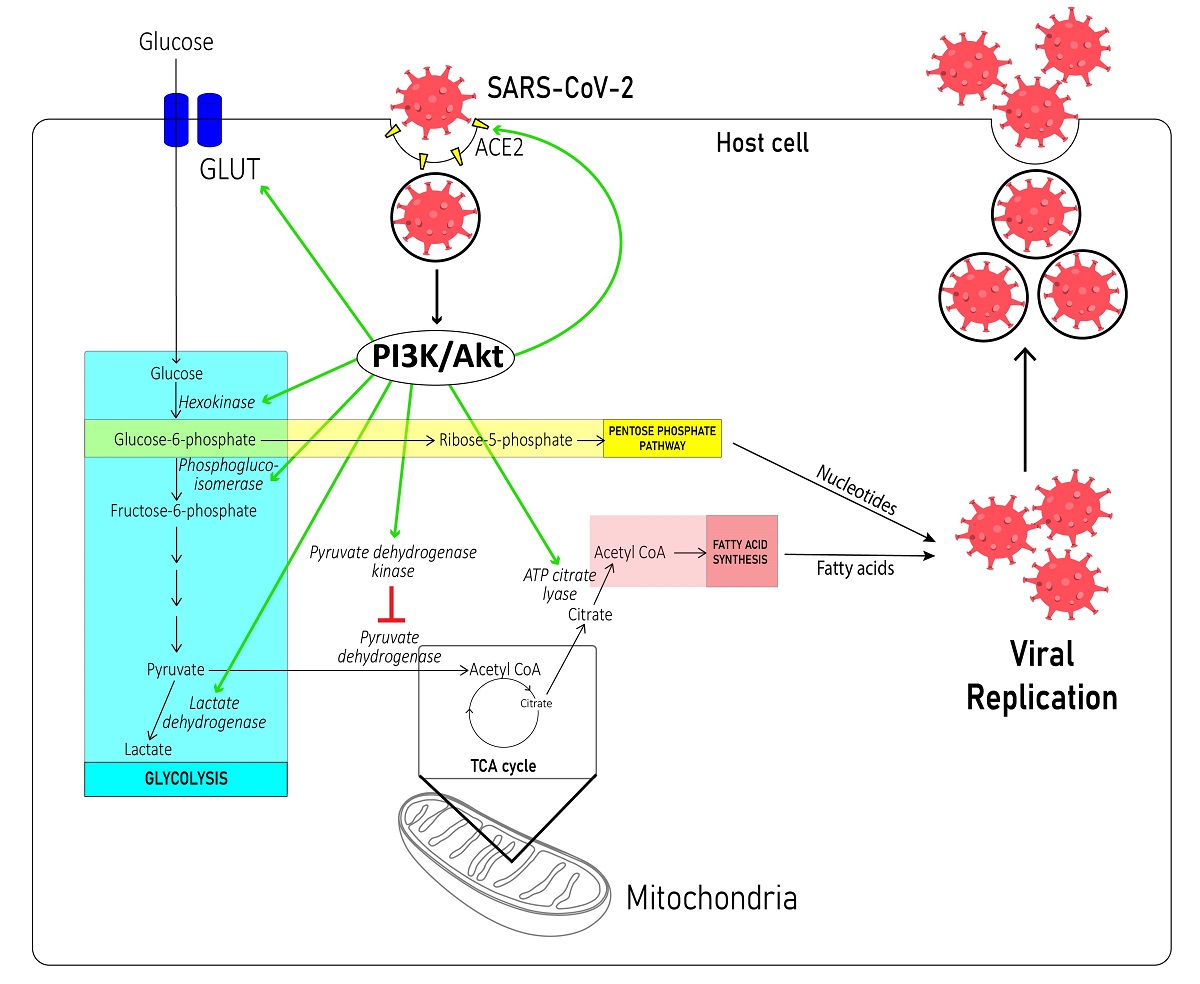The treatment of viral infections is challenging owing to the intricate structure and metabolism of the viruses. In addition, they can highjack host cellular metabolism, mutate and adapt to harsh environmental conditions. The novel coronavirus (SARS-CoV-2) displays further resilient attributes, making its eradication even more difficult. SARS-CoV-2 is an enveloped virus whose replication can be targeted by limiting the substrates available for structural incorporation. One such molecule that limits substrate availability and has received much attention lately is 2-Deoxy-d-glucose (2-DG). SARS-CoV-2 infection induces glycolysis, impairs mitochondrial function, and damages the infected cells. Administration of 2-DG can inhibit increased glycolytic flux and some other metabolic processes to cause the cessation of viral replication. This article provides a review of the mechanism of action and safety concerns associated with administering 2-DG in the treatment of COVID-19. The drug can have adverse effects on normal cell metabolism since it targets cells non-selectively, possibly in a dose-dependent manner. In addition, the drug has limited use in SARS-CoV-2 infection associated with stroke, hypoxic-ischemic encephalopathy, and critical illness.

